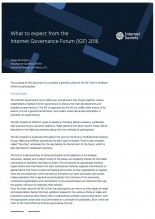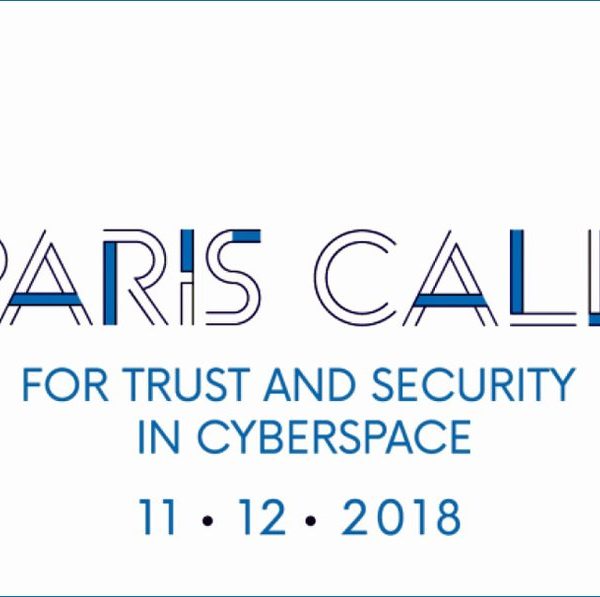Two hundred sessions. As many as 2500 attendees. There’s a lot to absorb at an Internet Governance Forum. While it’s an exciting event for a newcomer, the volume of activity can also make for a challenging experience.
So how can you get the most out of your first IGF? Here’s a cheat sheet!
Transcript of this video
- Arabic: ARABIC.pdf
- Chinese: CHINESE.pdf
- English: ENGLISH.pdf
- French: FRENCH.pdf
- Russian: RUSSIAN.pdf
1. Know your acronyms
IGF = Internet Governance Forum
You know that already, but we might as well start out on comfortable ground. The Internet Governance Forum is a neutral space where stakeholders concerned about the Internet and its future can share ideas about Internet policy and development issues.
DC = Dynamic Coalitions
This is a way of saying “a group of people with different interests”. There are about 15 of these groups, and you can ask to join the email list of any of them!
BPFs = Best Practices Forums
These are working groups created by the IGF to, predictably, produce Best Practice Outcome documents in their area of focus.
Those will get you started, but, you’ll need more than just those three acronyms to fully follow what is going on. Happily, you can look for a pocket acronym guide at the various booths!
2. Know what to expect
Walking down a hallway, you may encounter discussions between government policymakers working on legislation, engineers developing tomorrow’s Internet standards, representatives from your favorite social network, or civil society activists who risk their lives at home for online freedoms. Everyone exchanges information and viewpoints, and builds (human) networks to help them address the issues that are important to them.
3. Know where to focus
To get the most out of your first IGF experience, focus on one or two topics where you have expertise, or that concern your country or region. Focusing on a limited number of topics will prevent overload and help you organize your time.
4. Know how to get ahead of the game
Start by identifying relevant Internet governance initiatives on the IGF website. Then look for upcoming country or regional meetings and points of contact. If there is a meeting in your area before the global IGF, try to attend, whether in person or remotely. That way you will be walking into the room having already met some of your fellow attendees.
5. Know what to attend
There are several types of sessions at the IGF, many happening at the same time. It’s best to make at least a tentative choice in advance.
6. Know when to catch your breath
Like any conference, so much of the great parts of IGF happen in informal conversations outside of scheduled sessions. Make sure you give yourself space in your schedule to catch your breath and interact with other participants.
7. Know what you don’t know
If you’re going into a session you are not an expert in, try to do your homework first. The IGF website will have everything from documents to videos to transcripts from previous meetings to help you get up to speed.
8. Know how to build lasting connections
Bring your business cards, because the IGF is a great place to expand your network. You can discover and join new organizations, communities, and interest groups. Don’t be shy—just introduce yourself and join or start a conversation. Ask to share notes from sessions you could not attend, and watch for invites to dinners or receptions.
9. Know when to listen and when to speak
During some IGF sessions, people line up to ask questions and to comment. Make sure you listen carefully and respectfully to those questions and comments.
Make sure not to speak unless you have a different perspective or a solution-oriented observation. If you do want to step up to the mic, make sure you share a local experience, and speak with confidence.
10. Know how to keep the momentum
Think of the IGF as a process rather than a single event. You keep the process going by following up with people you’ve met, and staying involved through national and regional Internet governance initiatives, as well as through other Internet-related organizations. Share your experience through social media, write blog posts or an article, or connect with local Internet organizations.
11. Know what to do next
If you’re ready for more, you can plan a workshop for a local or regional IGF, or propose a session at the next global IGF with some of your new colleagues. Or organize a remote participation hub in your city for a local or regional IGF, inviting people to join discussions through video / audio feed. Whatever you do, know that your work is helping to strengthen the openness and accessibility of the Internet.
12. Share this video
Everyone’s voice is needed at a Global IGF so please share this video and post to make sure everyone who wants a voice in the future of the Internet can have a chance to be heard.
What to expect from IGF 2016

By Alejandro Pisanty, Facultad de Química, UNAM
Sociedad Internet de México, A.C
The purpose of this document is to present a general outline of the IGF 2016 to facilitate effective participation.
Read more or download the document.
Related links:
- IGF Resource Person: http://www.intgovforum.org/cms/resource-persons-list/about-resource-persons
- IGF Intercessional Work: http://www.intgovforum.org/multilingual/content/thematic-work
- IGF Remote Hubs: http://www.intgovforum.org/cms/igf2016rh


